“When you have confidence you can have a lot of fun. And when you have fun you can do amazing things.” (Joe Namath, former American football star and actor).
I enjoy communicating and I have great fun when I teach and help others to develop skills for presentations and talks. It is especially satisfying when you can help those who believe they can’t do it or are really not confident to do it. Sometimes it is about ‘pushing’ and almost ‘forcing’ but the context and environment needs to be supportive and understanding. So it was a pleasure, at the end of June, to engage with a diverse group of keepers and the education team at Drayton Manor Zoo in a workshop to support their engagement with visitors.
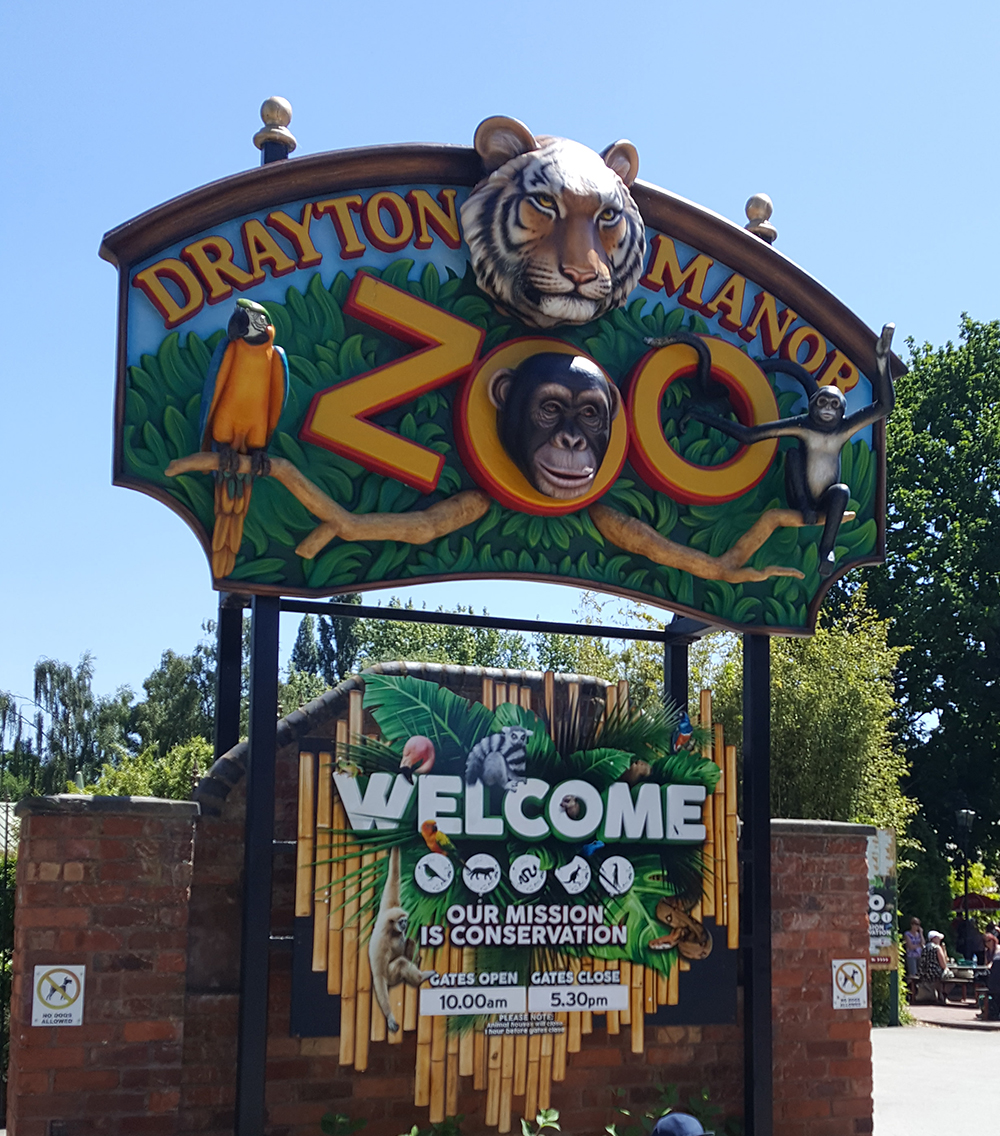
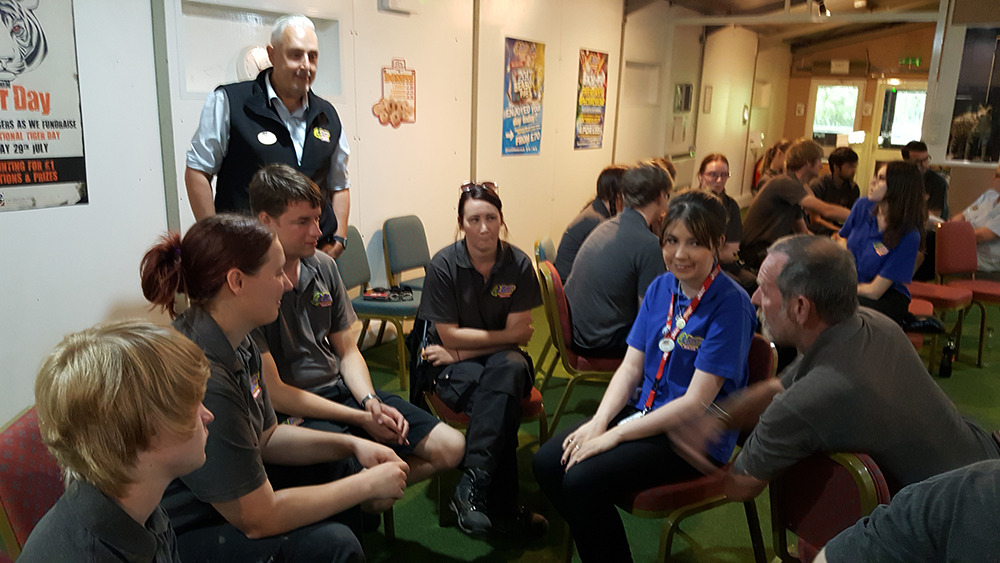
Some of the group were very confident and “up for it”, whereas others were clearly uncomfortable and not keen because of lack of confidence and experience. However, step one achieved – they were there. Step two engagement and activities for a few hours. Step three – as part of a group giving a presentation to each other – success! Next steps are to practice, work with colleagues, and engage with visitors.
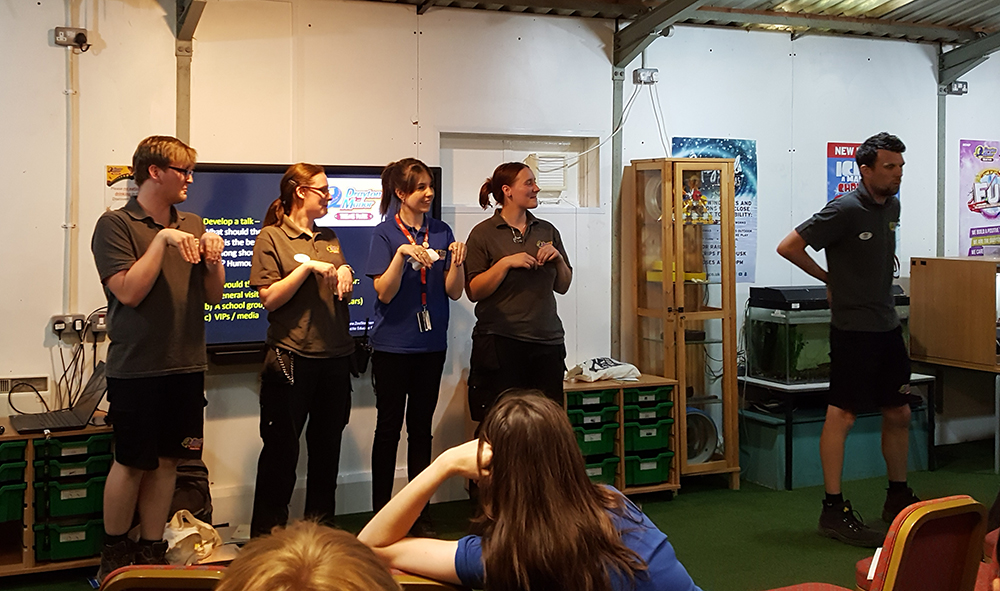
My presentation and communication workshop is adapted to suit each group and situation and so it was great to have a really positive response from the Drayton Manor Zoo staff no matter what their initial feeling or experience, and that confidence was built and will develop further within the team.
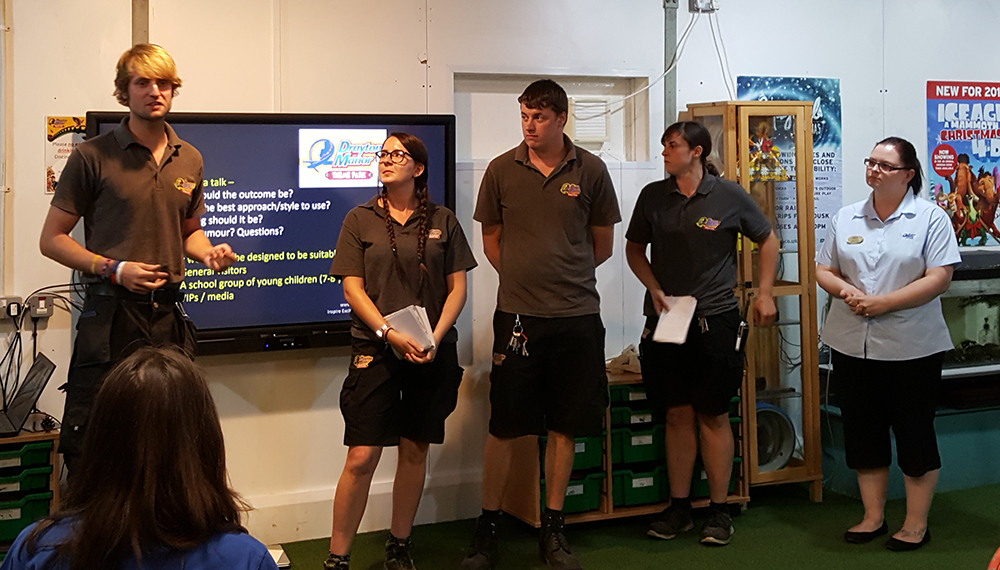
The zoo is at an exciting time in its history and has long term development plans, which are great to hear about. And of course, with the added attraction of the theme park and ‘Thomas the Tank Engine’ the potential for public engagement with a diverse audience within the zoo at Drayton Manor is significant.
Following my day at Drayton Manor it was a pleasure to return to Longleat where I conducted similar training over a year ago. I returned to visit the park but primarily to attend the ABWAK Symposium. The staff team at Longleat were brilliant and their confidence in both visitor and conference delegate engagement was superb. Here is another collection that has very large visitor numbers and a diverse visitor experience. The ‘safari’ and ‘animal adventure’ have come a long way in the park’s 50 years+ and its very exciting to see the latest news that Longleat is to house a couple of wombats and 6 southern koala, from Cleland Wildlife Park in South Australia, in a new facility (opening in 2019).
Drayton Manor and Longleat are very different but both ‘zoos’ to watch and to visit, and both have very large audiences from diverse backgrounds, thereby having potential to take conservation and conservation education to the masses – and to have fun too!

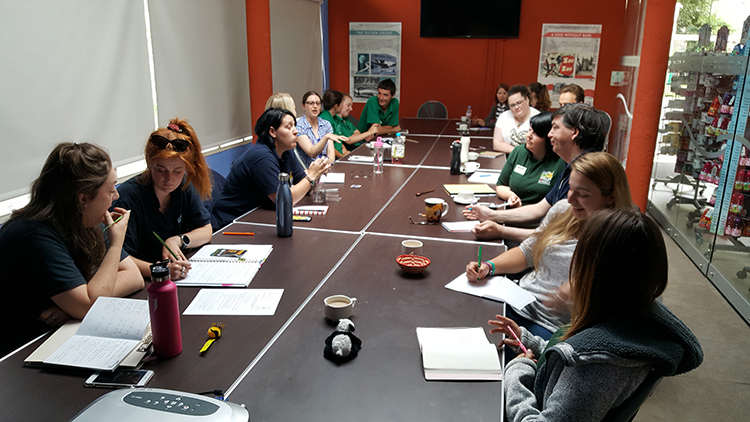 Communication and Presentation Skills training sessions are fun, and its great meeting new people.
Communication and Presentation Skills training sessions are fun, and its great meeting new people.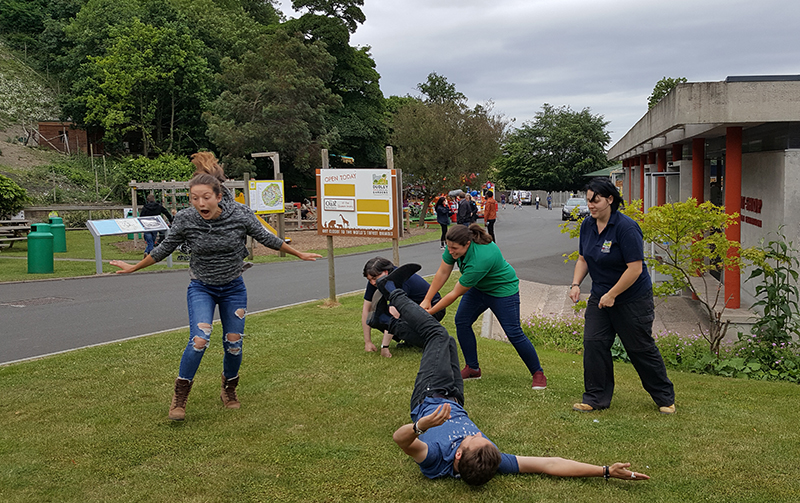
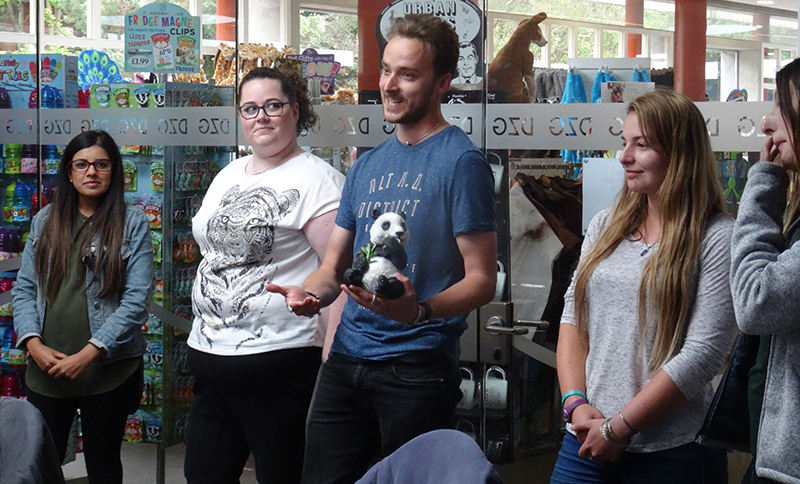
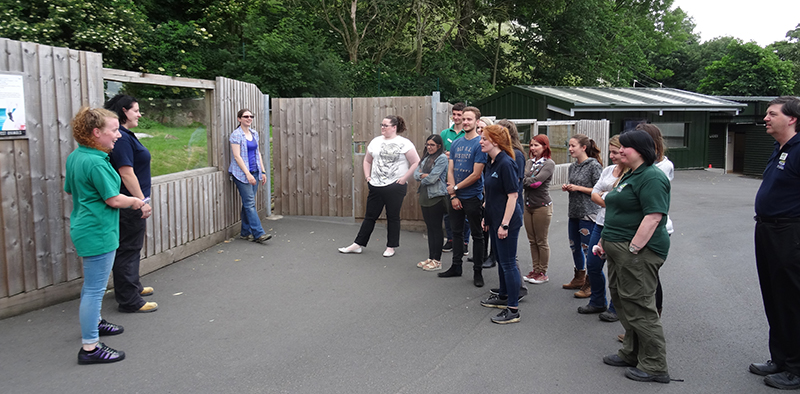
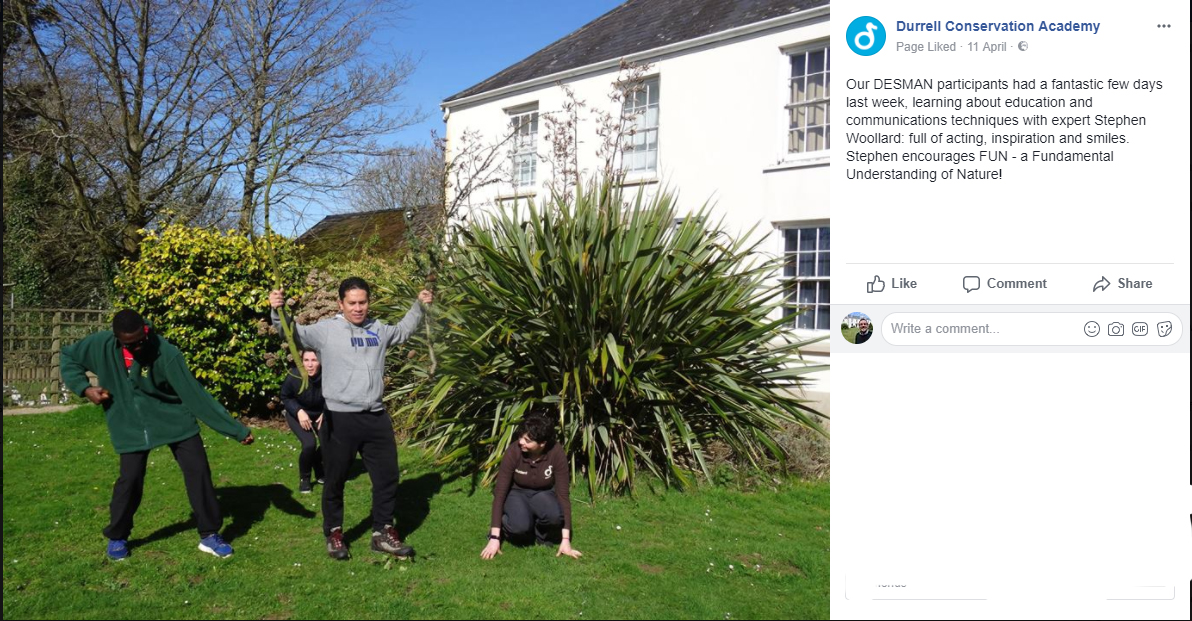 There is hope for the future. Conservation is often depicted as a battle and struggle, full of responding to ‘bad news’ and events – which undoubtedly it is. However, we should also be optimistic and celebrate the good news and success stories too. No conservation project, no matter how well conceived, planned and intentioned, will fully succeed unless it has the support of the people. Thankfully there are some amazing, inspiring and dedicated people around the world, working to conserve, protect and develop our understanding of nature. Some of these people are the participants in the Durrell Conservation Academy DESMAN course.
There is hope for the future. Conservation is often depicted as a battle and struggle, full of responding to ‘bad news’ and events – which undoubtedly it is. However, we should also be optimistic and celebrate the good news and success stories too. No conservation project, no matter how well conceived, planned and intentioned, will fully succeed unless it has the support of the people. Thankfully there are some amazing, inspiring and dedicated people around the world, working to conserve, protect and develop our understanding of nature. Some of these people are the participants in the Durrell Conservation Academy DESMAN course.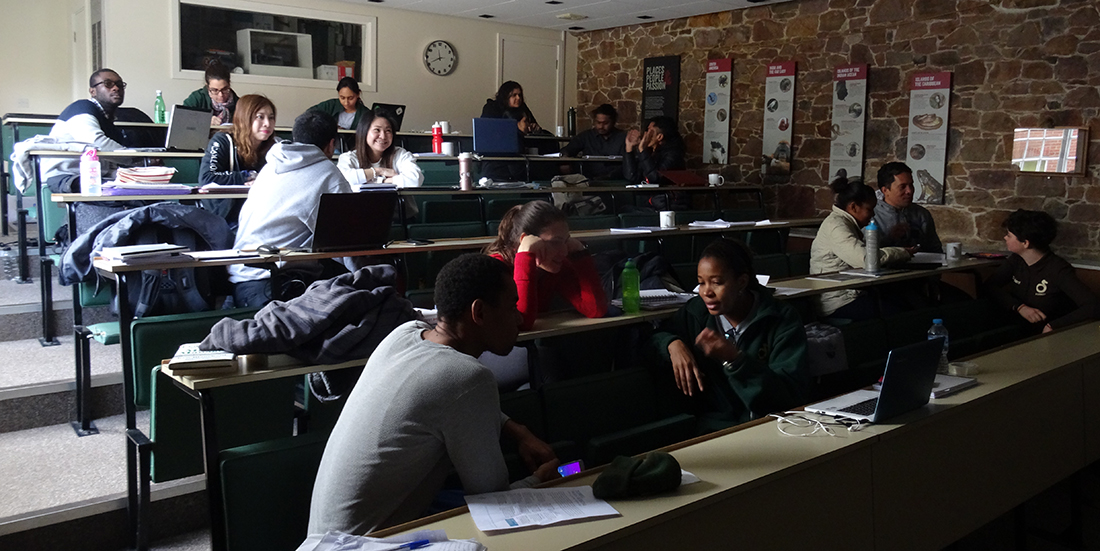 It was an honour and privilege to be invited to speak and lead a few days workshops for the DESMAN in Jersey once again; the third year I have done this. My education and communication ‘course’ was well received and I thoroughly enjoyed engaging with this year’s students who came from: Armenia, Brazil, Canada, China (Hong Kong), India, Nigeria, Samoa, St. Lucia, Seychelles, Sri Lanka, Sumatra, & UAE.
It was an honour and privilege to be invited to speak and lead a few days workshops for the DESMAN in Jersey once again; the third year I have done this. My education and communication ‘course’ was well received and I thoroughly enjoyed engaging with this year’s students who came from: Armenia, Brazil, Canada, China (Hong Kong), India, Nigeria, Samoa, St. Lucia, Seychelles, Sri Lanka, Sumatra, & UAE.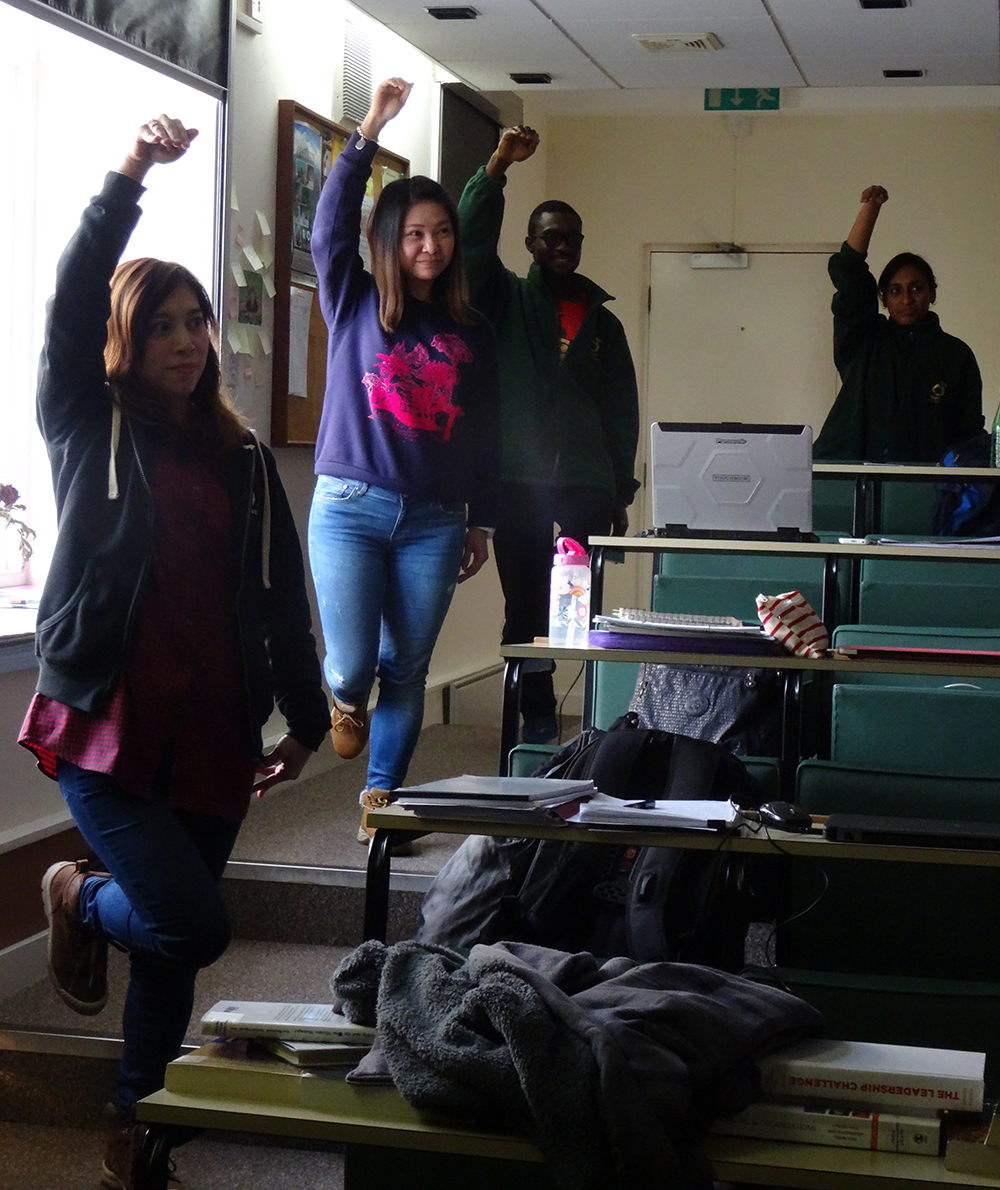
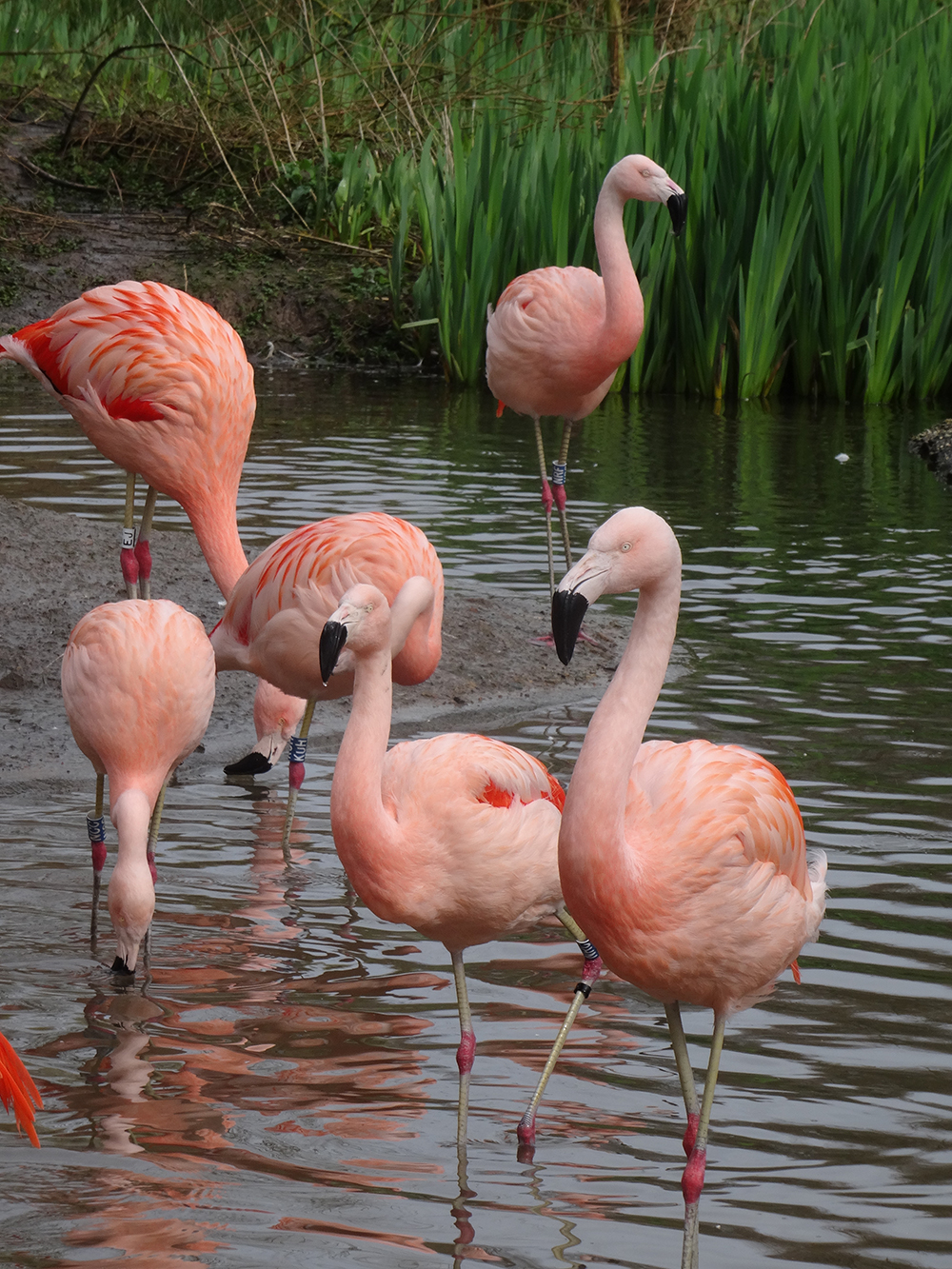
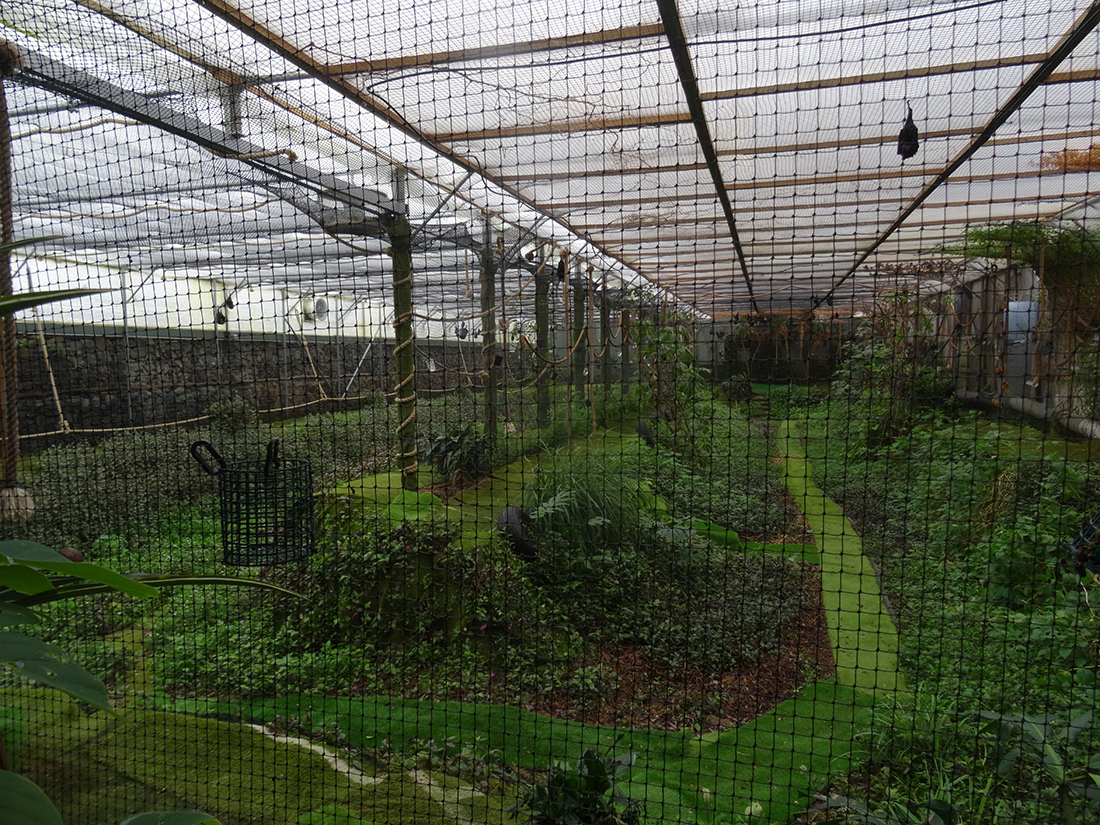 It was of course also great to return to Jersey Zoo, HQ of Durrell and enjoy time in the Zoo – not least the brilliant bat flight enclosure – which in itself has a great community and recycling story in its construction. We also enjoyed reviewing and critiquing the education for visitors, by observing talks, signs and discussing education programmes. One of the great aspects of the DESMAN is that the diversity of participants may have specific field projects and focus, but they get to understand endangered species management in general and the multi-faceted approach needed for conservation to succeed – including through education and communication.
It was of course also great to return to Jersey Zoo, HQ of Durrell and enjoy time in the Zoo – not least the brilliant bat flight enclosure – which in itself has a great community and recycling story in its construction. We also enjoyed reviewing and critiquing the education for visitors, by observing talks, signs and discussing education programmes. One of the great aspects of the DESMAN is that the diversity of participants may have specific field projects and focus, but they get to understand endangered species management in general and the multi-faceted approach needed for conservation to succeed – including through education and communication.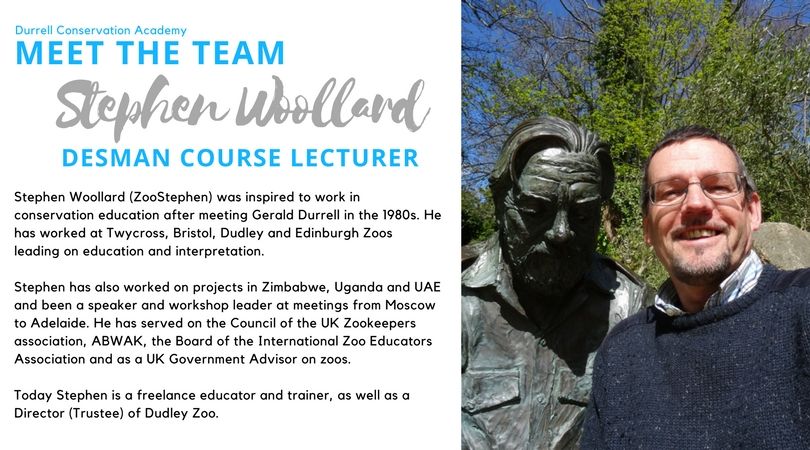
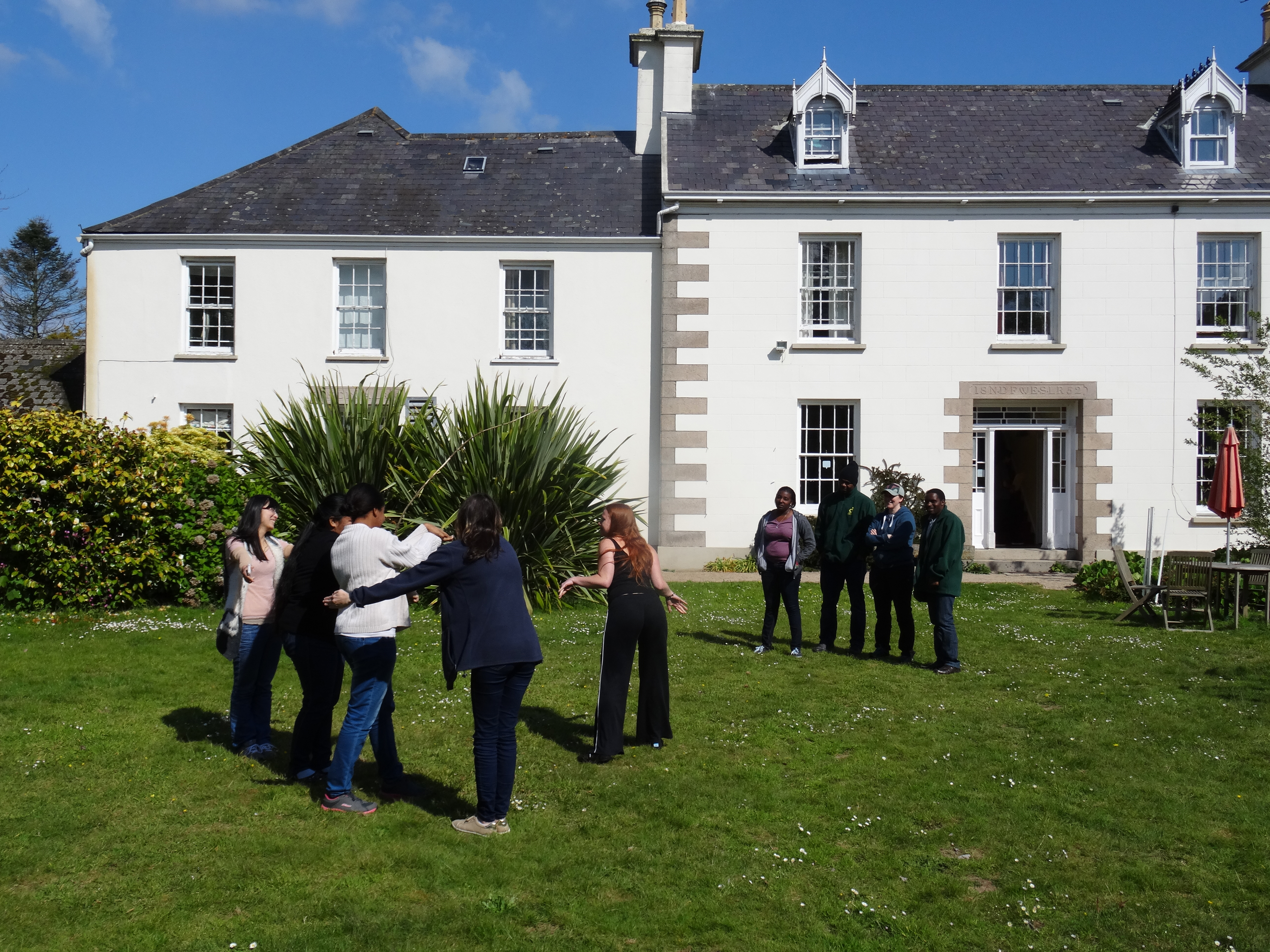
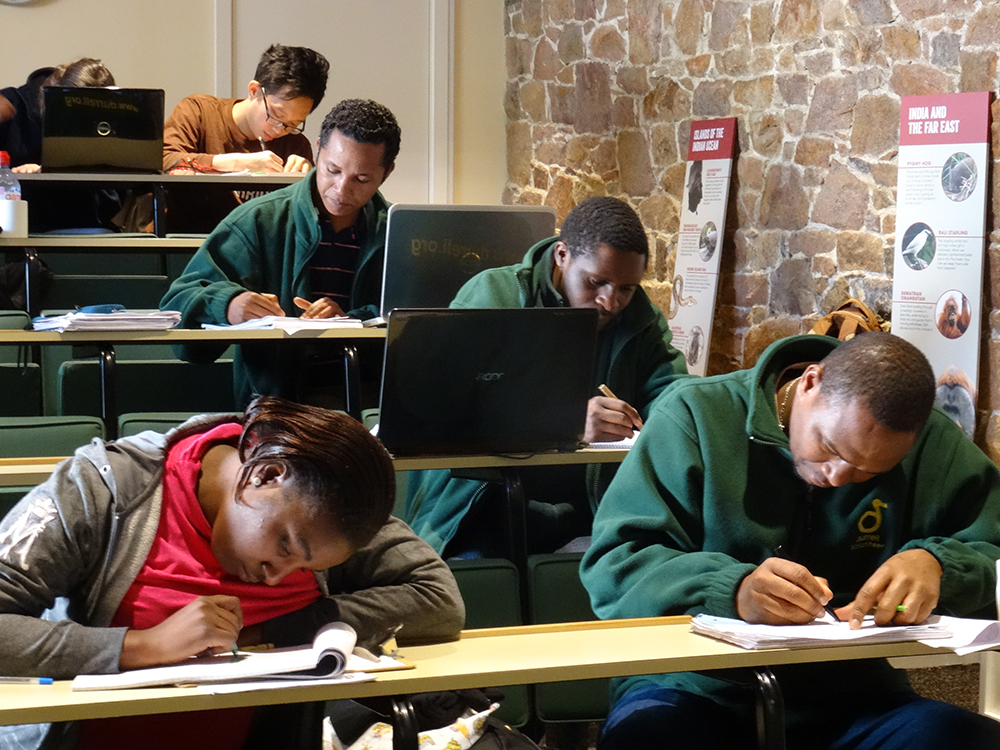 The Durrell Conservation Academy in Jersey has been involved in the training of hundreds of conservationists from around the world and its flagship programme is the Durrell Endangered Species Management Graduate Certificate – DESMAN. It was an honour to be asked to run the Conservation Education training aspect of this year’s course.
The Durrell Conservation Academy in Jersey has been involved in the training of hundreds of conservationists from around the world and its flagship programme is the Durrell Endangered Species Management Graduate Certificate – DESMAN. It was an honour to be asked to run the Conservation Education training aspect of this year’s course.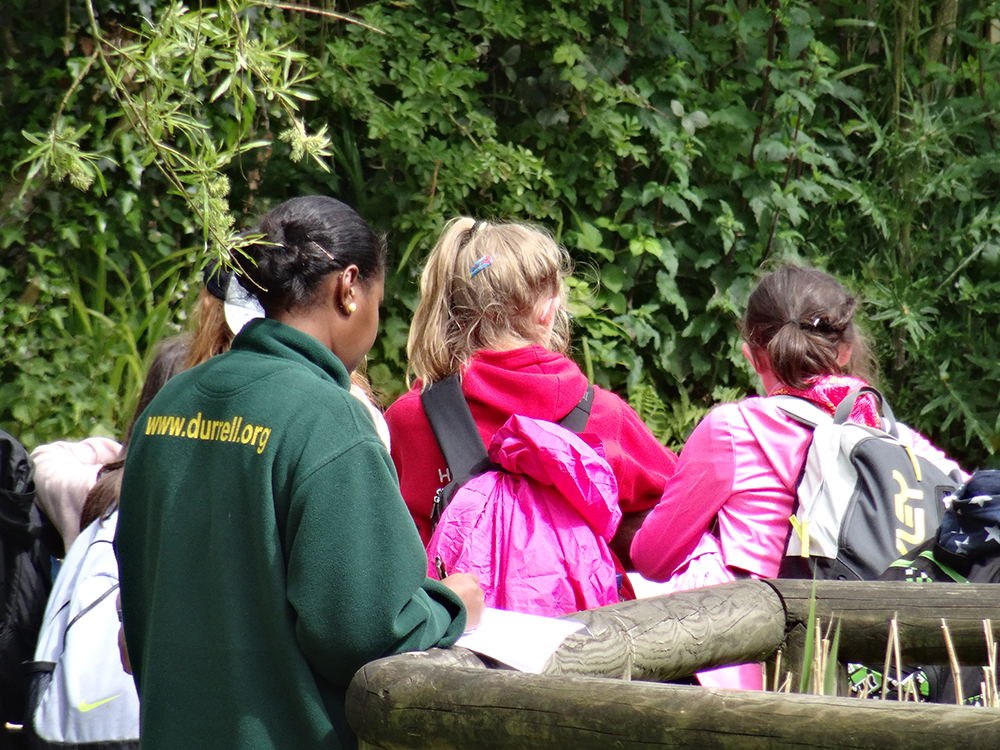
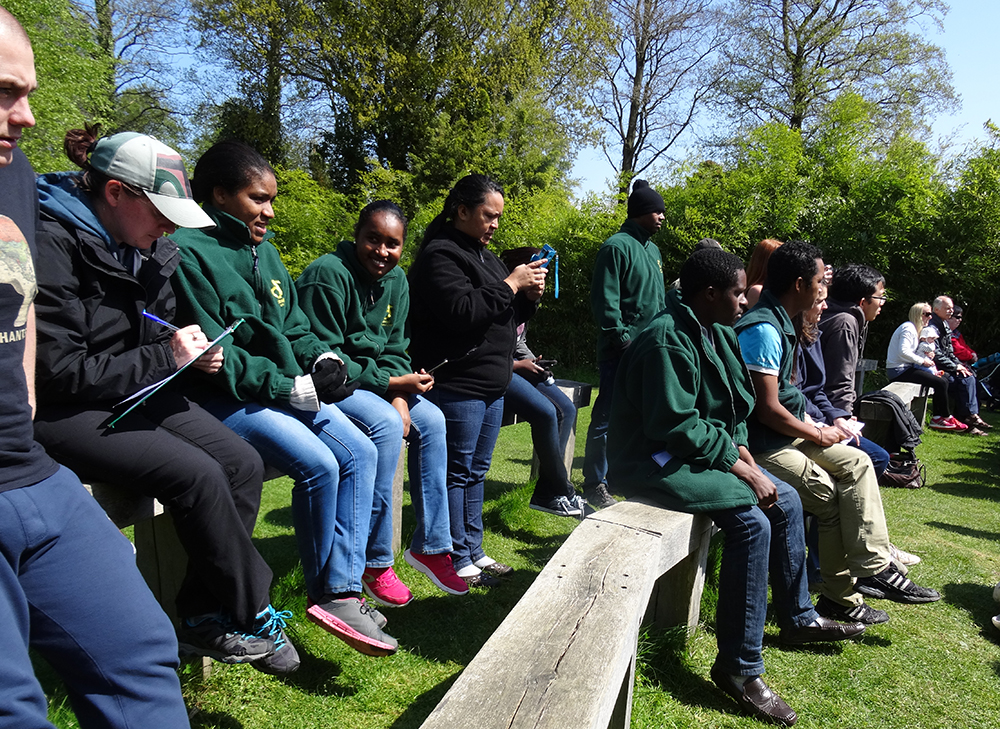
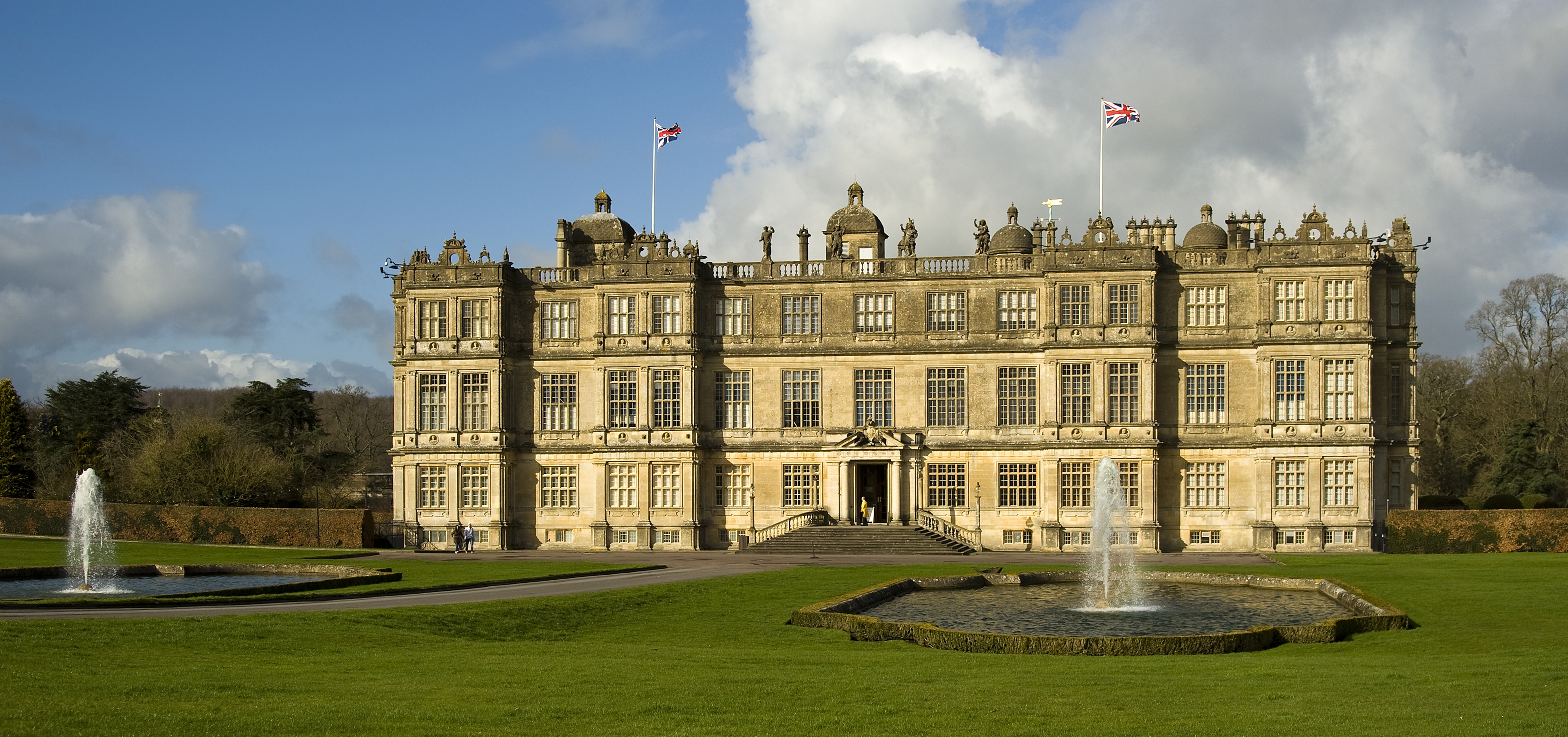 eir skills in presentation and communication. Longleat is an amazing place – not only the UK’s first safari park (opened 1966) but also has a walk around animal adventure area, lake and boat safari, play areas, train, the maze, and of course Longleat House and estate.
eir skills in presentation and communication. Longleat is an amazing place – not only the UK’s first safari park (opened 1966) but also has a walk around animal adventure area, lake and boat safari, play areas, train, the maze, and of course Longleat House and estate.


